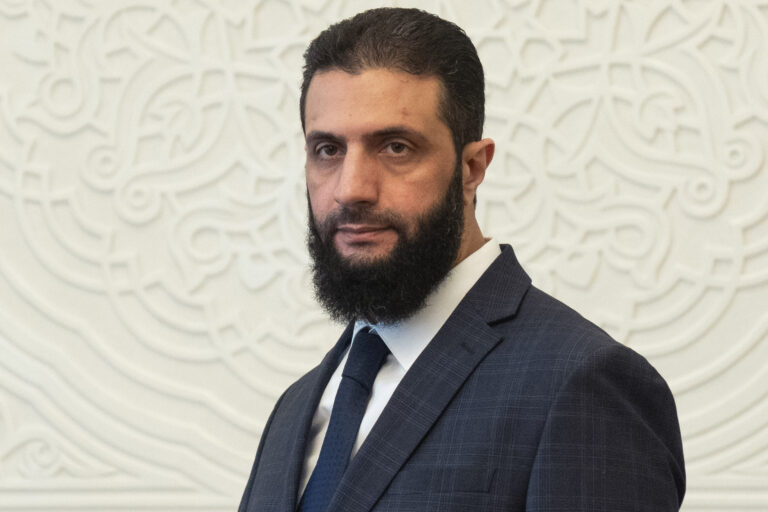 The immortal words in this week’s parsha. “Vayivoseir Yaakov levado, vayei’aveik ish imo,” ring with special urgency in our own times.
The immortal words in this week’s parsha. “Vayivoseir Yaakov levado, vayei’aveik ish imo,” ring with special urgency in our own times.
“Yaakov was left alone and a man came to do battle with him.”
Chazal explain that “the man” referred to in the posuk was Eisav’s malach. Unable to defeat Yaakov, the malach struck Yaakov’s “gid hanosheh.” At daybreak, when it was time for the angel to leave, he blessed Yaakov, saying, “From now on, your name will no longer be Yaakov, it will be Yisroel.” When asked for his name, the malach refused to identify himself and with that he was gone.
Levado. Our legacy, handed down by our forefather Yaakov, is to be alone. Halacha hi beyoduah she’Eisav soneh l’Yaakov. It is an irrevocable force built into the natural order that the Jewish people are hated throughout the ages. The nations of the world and the forces of evil will be forever locked in battle with us, determined to destroy us and what we stand for.
All through the ages, wherever Jews have found themselves, they have been targeted for destruction. Through the merit of our forefather Yaakov, as long as we were true to the mission of Yisroel, we were spared. Though battered and bruised as was Yaakov, we have remained standing long after Eisav – and those who fight his battles in each generation – have disappeared from the scene.
In the darkness of golus, men of faith stand out as lonely beacons of light and hope. Holding up the banner of Torah in a degenerate world is not easy. We are in the minority and always forced to be on the defensive. Sometimes Eisav appears in the guise of a well-meaning brother trying to help us. He advises us to make peace with our enemies who seek our destruction. He tells us to make compromises so that we can advance our causes. He tells us to sacrifice our principles and bend the rules in order to get ahead. At times he sends henchmen to do his insidious work and at times he appears himself.
We have to be prepared to do battle with him and his ilk. That means being prepared to be lonely, unpopular and unloved.
Chazal teach that it is only when Yaakov is “levado” that he survives. It is only when we stay apart from the Eisavs of this world that we can survive and prosper.
But levado doesn’t mean for each person to isolate himself in his own corner, self-centered and unconcerned for the tzibbur. Levado means that the Bnei Yaakov have to join and work together, and support each other with more than pachim ketanim.
Instead of being reactive, we should be proactive. We should look for ways to help support and spread Torah in our communities. We should join forces and seek out talmidei chachomim who need support. We should be thinking of ways to help mechanchim everywhere earn an honorable income. We have to do more to elevate their holy task to a place of esteem in our community. Why must those who dedicate their lives to the survival of the Jewish nation live barely above the poverty line?
A yungerman I met in Yerushalayim over Sukkos called me last week. My family and I had stayed in a retirement home which doubles as a hotel. This yungerman lains in the in-house shul and does his best to inject simcha and meaning into the davening and into the lives of the residents of the retirement home.
I made small talk with him over Yom Tov and before I was to return home, he came over to me with a request. He learns in a kollel, has a large family and can’t make ends meet His job in the retirement home augments his meager income, but it still isn’t enough. He said that he used to be paid to learn Mishnayos in memory of niftarim, but that ended. Feeding his family is now beyond his means. He asked me to put an advertisement in the paper that he is available to learn Mishnayos as a zechus.
He called to remind me about his predicament and asked me if I would be kind enough to keep running his ad because it hadn’t yet brought him any customers. He hasn’t been able to sign anyone up. He was crestfallen. “Oy, what am I going to do? I hoped that this would bring my yeshuah.”
I reassured him that the ad would keep running and told him that in seforim it says that at the point that man is misyaeish and gives up hope, that is when the yeshuah comes. As long as a person thinks that he can do it on his own, that he has eitzos of his own, G-d leaves him to his own devices. When a person gives up and realizes that all is from Hashem, that is when the salvation arrives. Perhaps now the yeshuah will come, I encouraged him.
I cheered him up a bit and hung up the phone, returning to my work. But I had difficulty concentrating. I thought of him sitting in his cramped apartment in Yerushalayim, troubled and anxious about his family’s predicament. I visualized him hanging up the phone in despair, not knowing where to turn to pay his bills. It is easy for me to sit in comfort and offer words of consolation. But ultimately, he is left with his terrible burden.
The bad news is that it’s not just this individual who suffers this way. There are so many more people like him. There are so many people in this country, as well as in Eretz Yisroel, who have no clue as to how they are going to make it to the end of the month. So many are in financial trouble and can’t seem to find a way to crawl out of their mess. So many people we know, and those who we will never know, need help urgently.
If we really care about Torah, we need to show it by supporting the noble and valiant people who labor in its vineyards far from the spotlight. Many of them – including some in our own daled amos – are barely holding on. There is grandeur in their daily hanhaga and in what they accomplish, but we don’t accord them the respect they deserve.
There are so many ways we can help people who are doing G-d’s work, but the first prerequisite is to care. We don’t need to raise millions of dollars and we don’t need official organizations to carry out our obligations. We don’t need bureaucracies and fancy paperwork and brochures to tell us to care about the good people who are being crushed by mounting debt.
We like to sit around and talk about how people waste money and contribute to silly causes. But is there anything stopping us from going out and raising money for people we know and can vouch for, who can use our help?
It is very easy to criticize others for not doing enough, and for having skewed priorities and questionable values. Criticizing others is always easier than rolling up our own sleeves and getting our hands dirty trying to lighten another’s burden and make a difference in people’s lives.
Let’s not just waste our breath giving it lip service; let’s start doing something real. Let us all increase the light of Torah by marshalling our resources to support those who labor for Torah, and by spreading goodness and generosity in this world.
HOW CAN THIS BE HAPPENING?
Many people read the news emanating from Eretz Yisroel and wonder how this can be happening. How can a totally unpopular and discredited prime minister be allowed to bargain away the country’s future with no one standing in his way? How can it be that next week, Israel will sit down at a table with its unrepentant sworn enemies and give away pieces of the country in a drunken stupor? How can it be that the people in power have learned nothing about Palestinian mentality in all these years since Clinton and Barak offered Arafat Yerushalayim at Camp David, only to be rewarded with an intifada war?
How can President Bush, who sought for his legacy the war against terror, strong arm the only democracy in the Middle East to lay the groundwork for yet another terror state, this one right on Israel’s back door? How can President Bush permit the Arabist State Dept. to dictate his policy on Israel? How can an American secretary of state display such an outright lack of understanding of the situation on the ground and continue to command respect?
Why is there a double standard? Why does it always seem to be as if the Jews and the Israelis get treated so unfairly? Why is it that facts that are so obvious for us to see are ignored by the people in power?
Those of us who learn the parsha every week have no questions, only answers. We know we are in golus. We know Eisav soneh l’Yaakov. We know mipnei chatoeinu golinu me’artzeinu. We know it will be this way until we return to the ways of Avrohom, Yitzchok and Yaakov and effect the coming of Moshiach. All else is commentary.
Our actions will help defeat Eisav in all his many guises and lead to the kiyum of “Vayizrach lo hashemesh,” for each and every one of us. Amein.
© 2007 Yated Neeman.











13 Responses
How can we “return to the ways of Avrohom, Yitzchok and Yaakov” when earning a living the HONEST way doesn’t cover all neccessities- food, shelter and (low priced)clothing? We are discouraged and warned of getting a higher education, but only a small percentage of those who don’t can pay their bills (never mind marry off children).
If I recall when learning about the AVOS, that Avrohom, Yitzchok, & Yaakov were the wealthist guys in all in Canaen, running a youth hostel, country club and kiruv center. I would vote to return to their ways. ANY SUGGESTIONS????
Again, we have to stop buying husbands for our daughters. If there is no supply, there will be no demand. Let us encourage our daughters to date young men who are planning for their parnasa – whether that parnasa be chinuch or any other profession (meaning getting educated in the field of their intended profession before they are married). Let us encourage our sons to learn during the day and go to college at night (such as Touro -men’s only)to properly prepare BEFORE marriage for their obligation as stated in the kesuba to support their families upon marriage. If more of us will do this, the tide will change. In addition, those who are sincere and shtark in their learning and with G-d’s help will become our future gedolim, poskim, dayanim, rabbis, etc., can learn in kollel and receive adequate compensation to help support their families. Because there will be less men in kollel, they should be able to get a higher kollel stipend.
There is a very valid point in this article. I don’t understand how you can argue with what he wrote about helping who aren’t not making it. Where I come from, that’s called Tzedakah!
Helpers are being squeezed thin, there are many organizations and individuals who need assistance, educationally, gmachs, hospitals, medical needs, kollels, elderly, Israel terror victims, rebuilding destroyed yeshivas and cemetaries (?) in Europe, the list goes on..
Yes, lkwdfellow, there is a very valid point in this article. With the best of intentions and a multitude of the most deserving of causes, you have to HAVE it, to be able to give it.
To have it, we need the ability to earn it. We are becoming a community of takers, with very few, and petering as time goes on, who are able to be givers.
The savings that resulted from business successes of the older generation, when the economy and peoples’ work ethics were very different, are rapidly getting depleted. Largely, manufacturing has moved abroad, leaving the professions the main means of livelihood on which the average household is able to subsist. By the time the bulk of our Kollel husbands, need a livelihood, it’s too late to get the education for professions, bec. of the dire need already existing. Women need to work with multiple children, paying increasing childcare bills, as the size of the family increases. Due to lack of education, many women end up with very meager earnings, after paying childcare. Additionally, some young men, when not accustomed to working in their early adulthood, find it hard to work later, both emotionally and physically, coupled with the fact that they are largely unskilled for decent positions. This brings about a cycle of need and difficulty in all areas.
It is imperative that this be examined and at least somewhat resolved.
TMIMUS, while I thank you for agreeing with me, I think you are missing the point of the article. The point is everyone has to do their part to help those less fortunate.
True, the present system that’s in place needs change. But, that doesn’t mean it’s an excuse for those that are able to give, not to.
We see plenty of people who do “have it” spending large amounts of money on things that the older generation never dreamed of. If some of that money could be redirected to needy causes, then this article will be a success.
Firstly, I didn’t miss your point at all. We are in total agreement that those “that are able to give” should.
I truly believe that part of the reason that people are “spending large amounts of money on things that the older generation never dreamed of..” is their need to (to quote Gold) “buy(ing) husbands for (our) daughters”. Only a select few of those that have the money, lack the Teyvah to display their wealth, as an attraction to boys who are considered the best S’choira for their daughters. If it wouldn’t be successful bait, they would not do it.
Unfortunately, it’s all connected.
Gold- A BTL degree (which is obtained by learning in yeshiva for four years post-high school,) is a perfectly acceptable prerequisite for law school, MA in social work, MS in taxation (Baruch College); numerous other professions only require some additional prerequisites to enter a master’s program (when the person has a BTL.) Thus, young men might well be “planning for their parnassa” even if they are learning in Lakewood.
On the day that all of those who are learning are REALLY learning for THE SAKE OF learning, and all those who are not cut out for learning are earning a living – then, perhaps, support for genuine Torah scholars will be complete and generous.
tomim tihye – i know about the BTL, which is a great idea IF the young man will be going for the masters at the right time. by the right time, i mean not when his family’s finances are in trouble, and his wife has been working out of the house for five, six, seven years, leaving her babies at the day care center/frum babysitter service, and she really needs her husband home at night to help out with the kids and the chores (instead of him going off to college and doing all the work that that entails),and the parents and inlaws can’t cover all the bills. at this specific point in time, who is going to shell out the money for the masters degree and continue to pay the bills until he finishes the masters degree, which does not happen overnight? i understand that many yeshivos, if not all, do NOT pay a kollel stipend if the man is attending college at night. this futher impedes the process of planning for parnasa at the right time. by the way, if anyone knows a yeshiva that does pay a kollel stipend when the young man is going for a degree at night, please post it so i can know about it.
so my point is that in the long run, doesn’t it make sense for a young man to get his masters done (or almost done) before he gets married and has the least amount of responsibilities? this way, he can get married, learn for a reasonable amount of time, and go into his field of choice sooner than later when the financial need compels him to?
#12, good point, and kudos to those who’ve worked so hard for accreditation. But at what point should one start that masters (and take out massive loans)? It takes time to earn that masters, and many young men starting the nuts and bolts of parnasah schooling really don’t have that time to spend.
tomim tihye: Those that can start studying for three years for a degree, after being supported for many years in Kollel, are in the minority. In addition, after the three years of study for the Masters, it takes time to land a job, even with the best of professions. This is not realistic for growing families with limited funds.